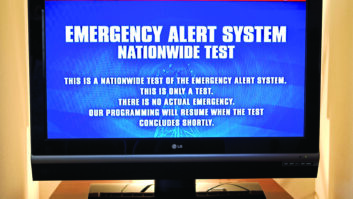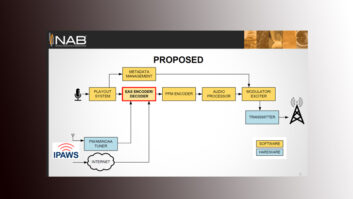The federal investigation into the recent “zombie” hacking of some stations’ EAS equipment continues. Also, there will be another national EAS test, but officials are still learning from the first one.
Those are two broad conclusions from a meeting Monday on emergency alerting organized by the National Alliance of State Broadcasters Associations and NAB.
Tom Beers, chief of the FCC’s Policy and Licensing Division of its Public Safety and Homeland Security Bureau, said the commission is in the process of assembling what the agency learned from the test for public dissemination. He didn’t say when that would occur during the meeting, which was streamed over the Internet.
The investigation continues into what happened to allow someone to hack some stations’ EAS encoders/decoders and insert false alerts that were aired on some of those facilities, said FCC Public Safety and Homeland Security Bureau Chief David Turetsky. The Internet will remain an important means of communication, he said. “There is no silver bullet. We need to work hard to create greater security.” He referred to some basic shortcomings discovered at stations “that should be easy to avoid in the future.” We reported some stations that were hacked had connected their EAS equipment directly to the Internet, rather than behind a firewall, and had not changed the factory-provided password.
FEMA is installing satellite receivers in the Primary Entry Point stations so that someday they may receive alerts via satellite, said FEMA Assistant Administrator, National Continuity Programs Damon Penn.
Finally, with the advent of wireless text alerts in 2012, Penn assured broadcasters that stations are still a vital part of emergency alerting, noting that every text alert sent on a cellphone reminds the public to tune to their local station for more specific information.






